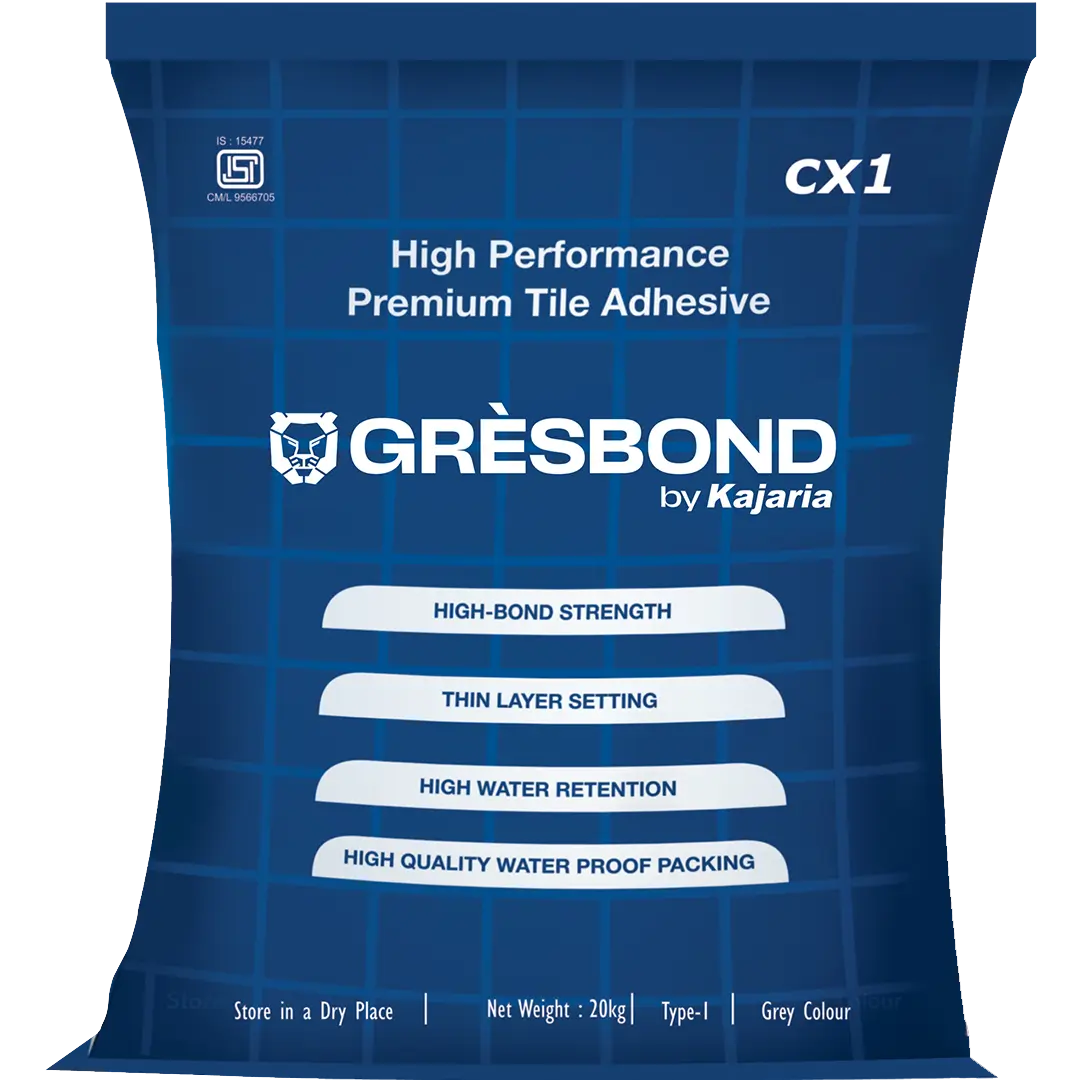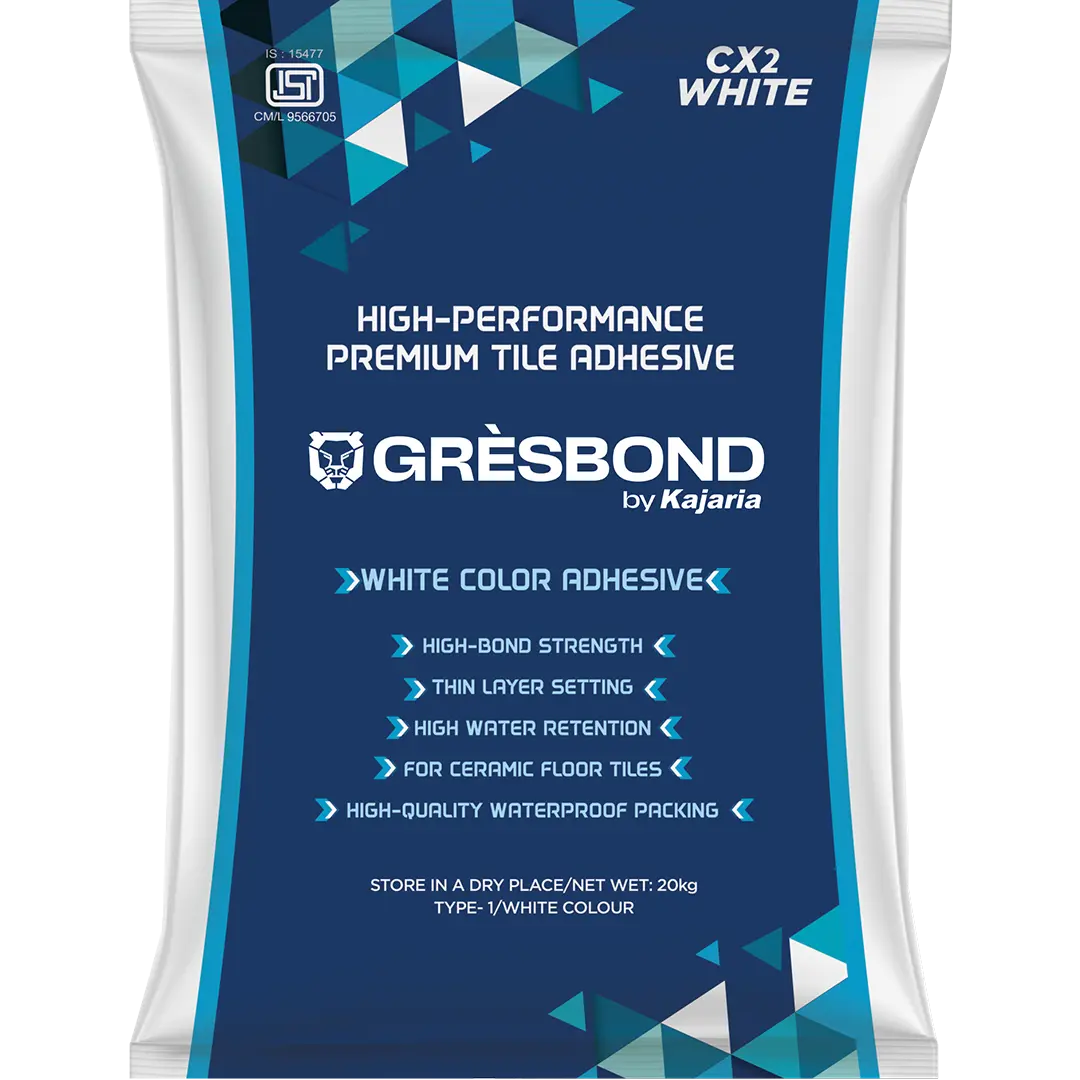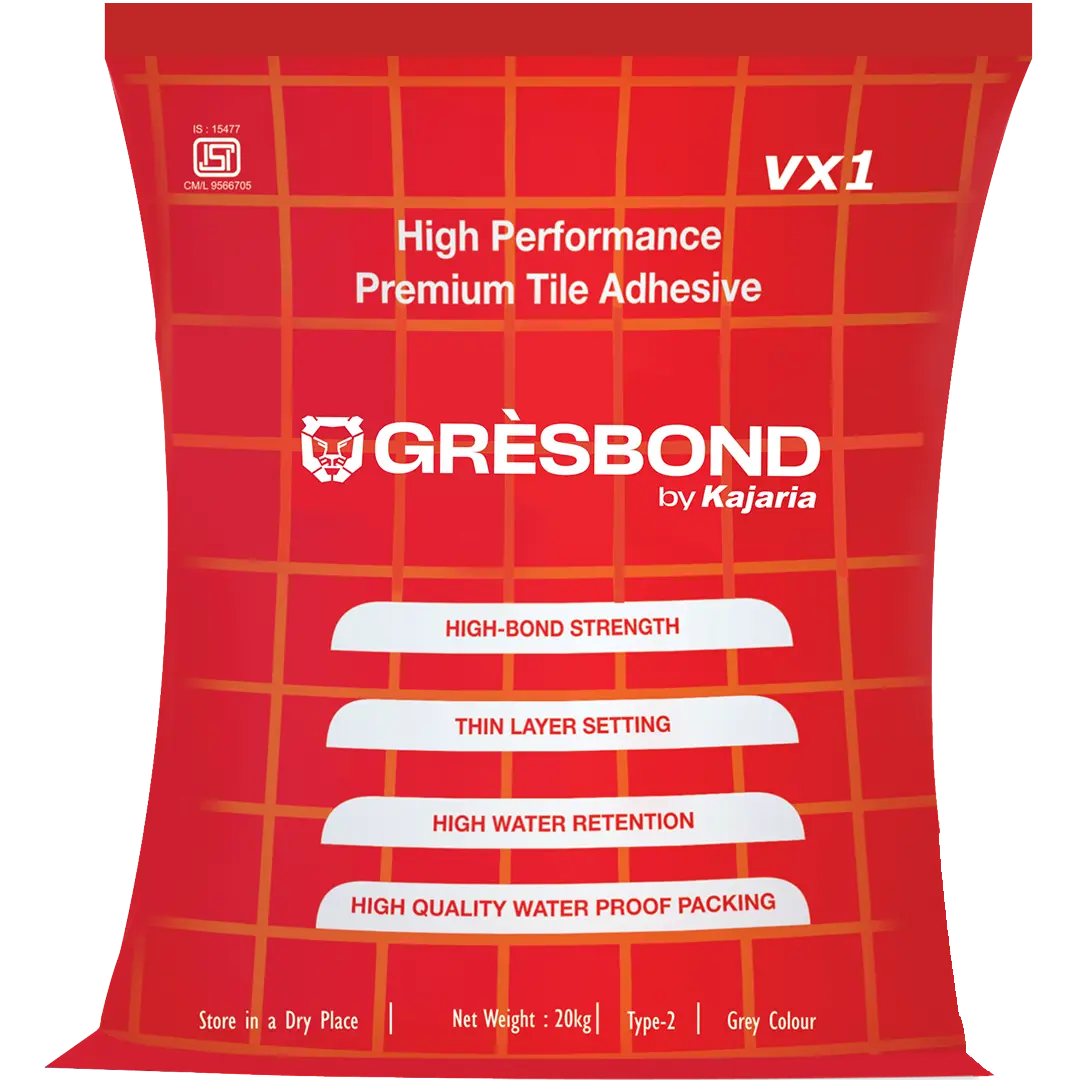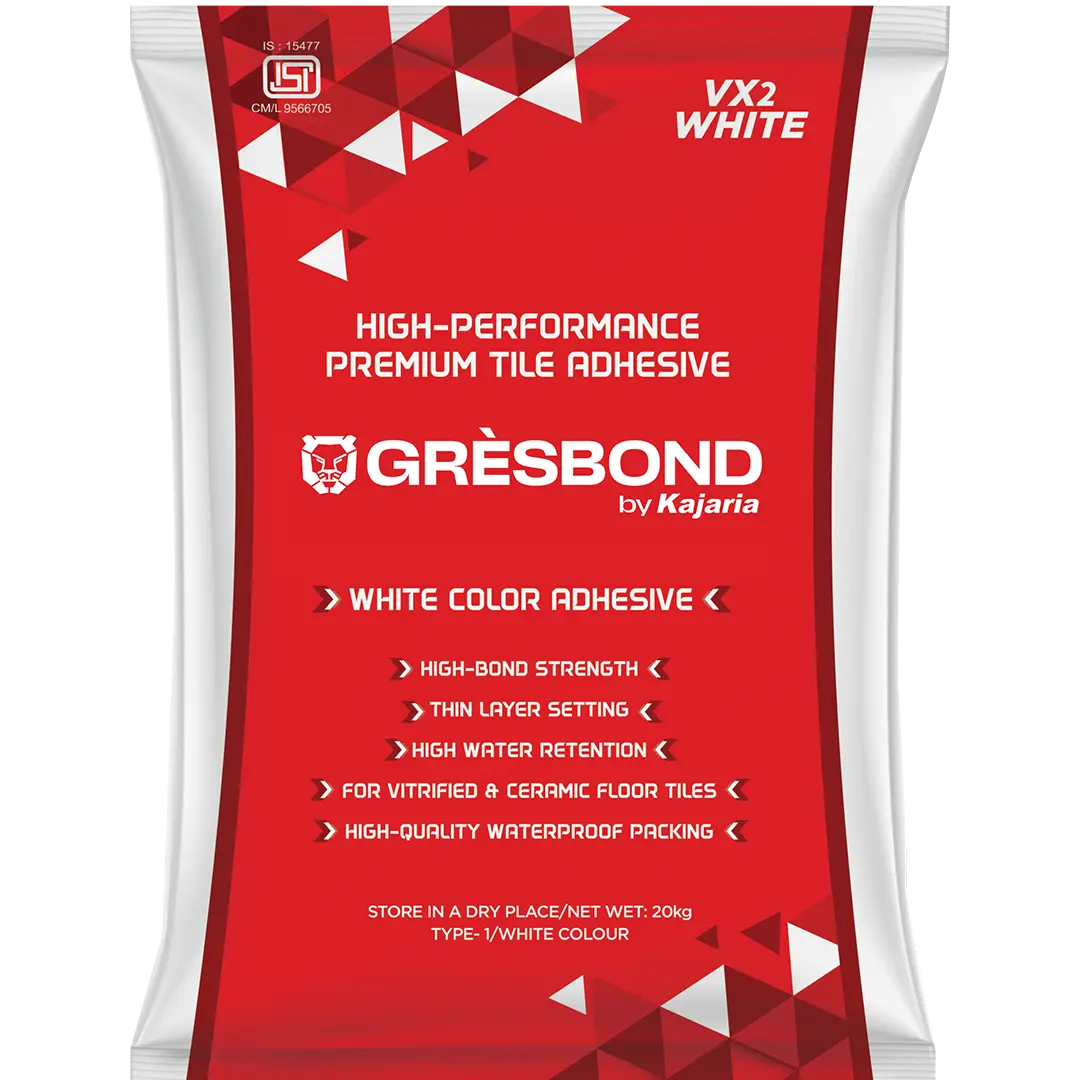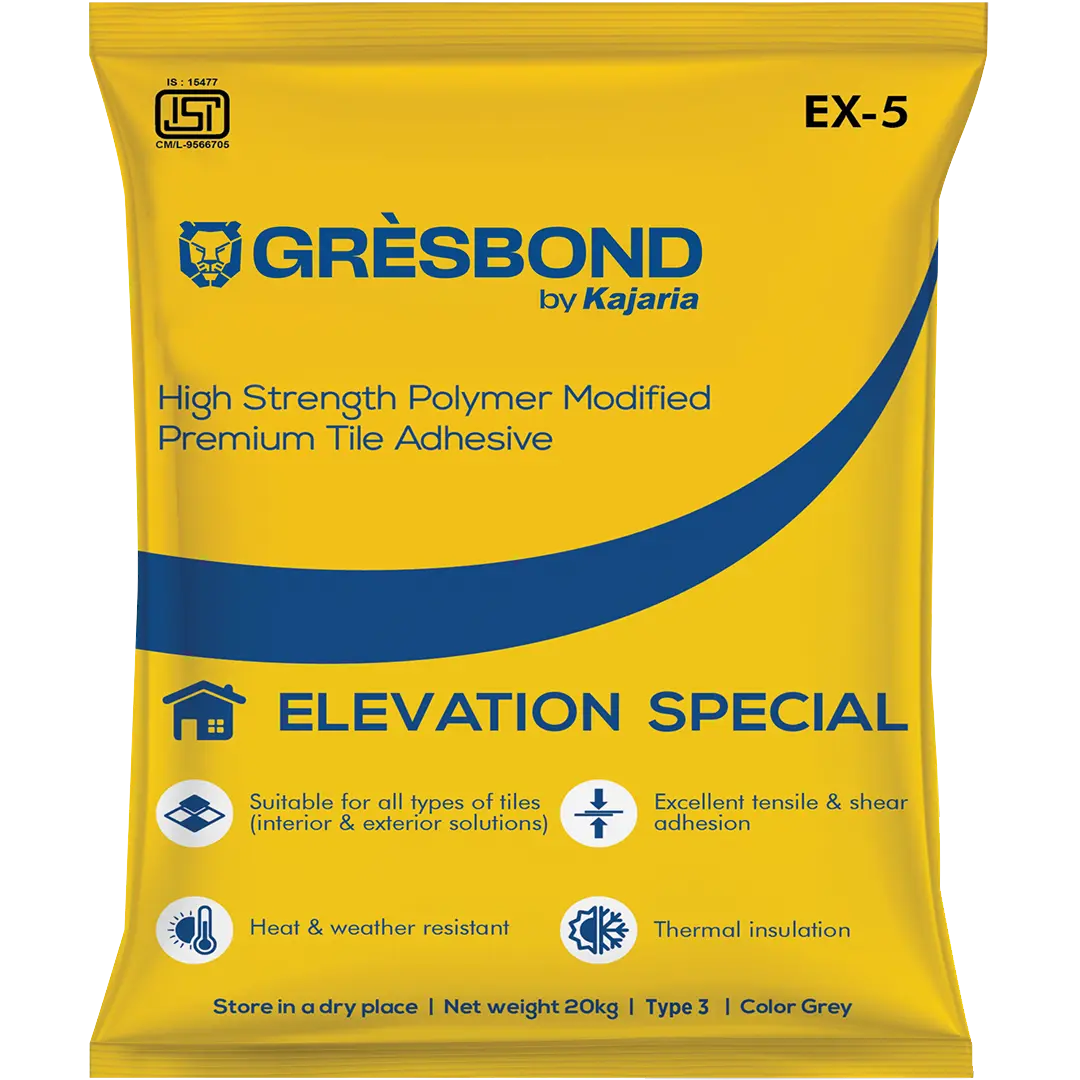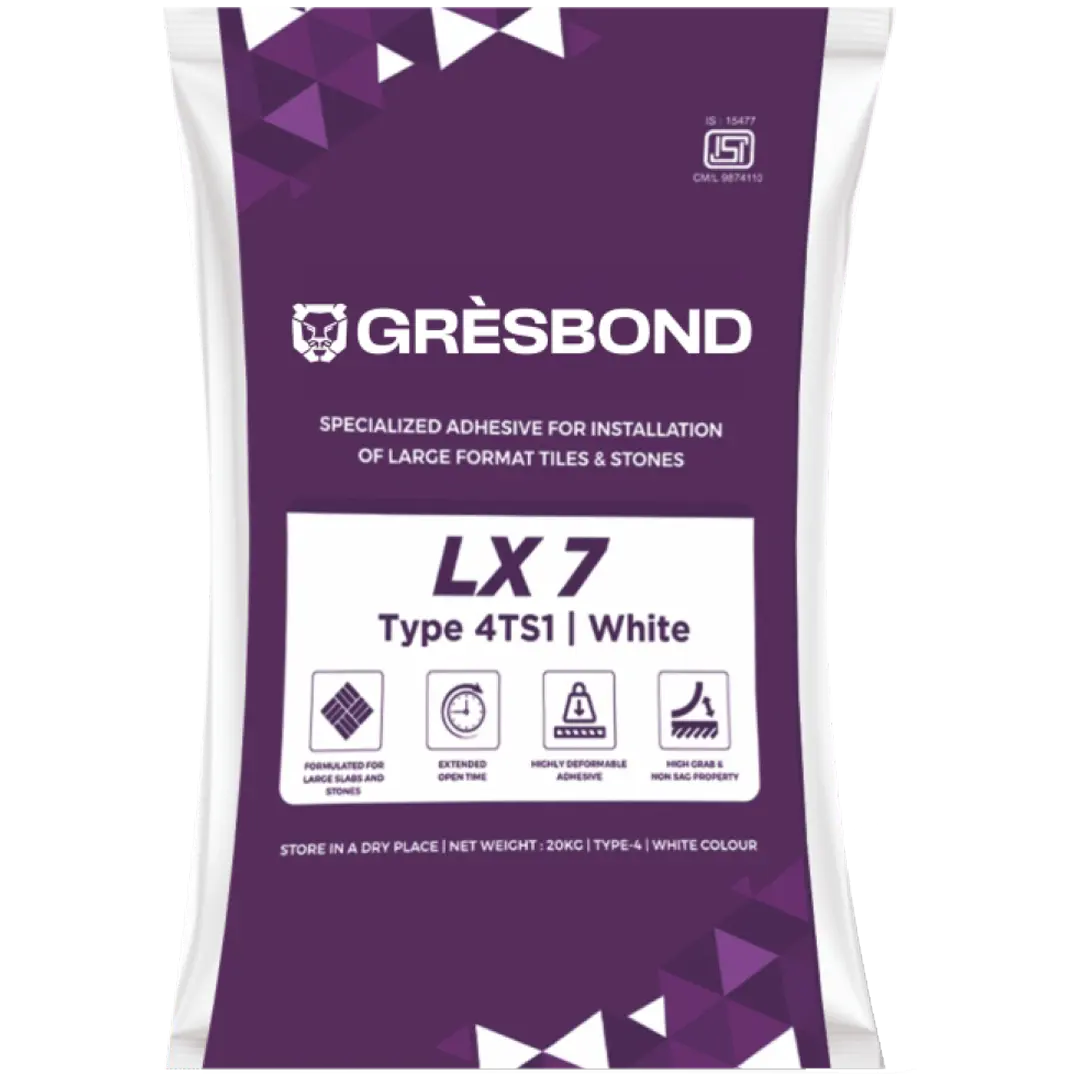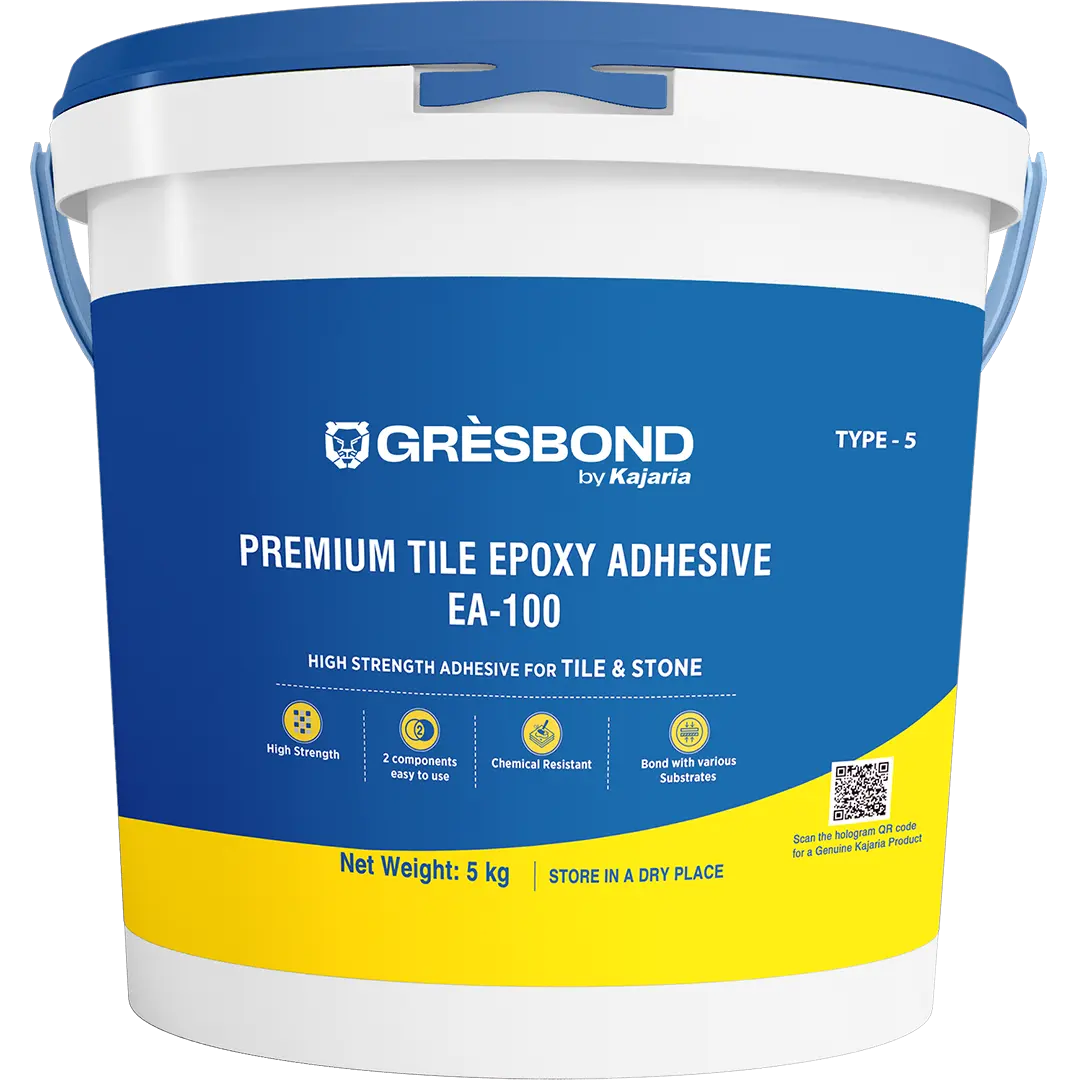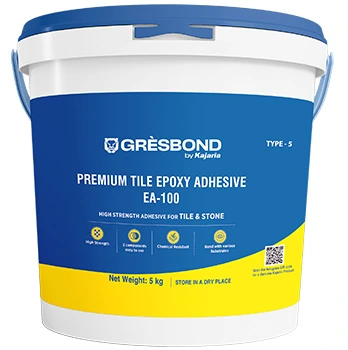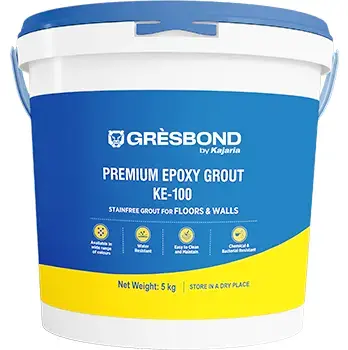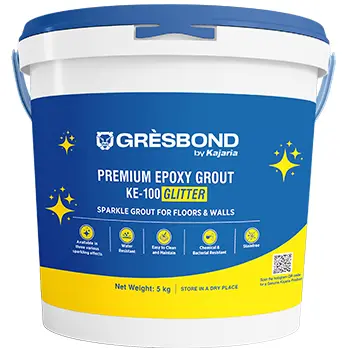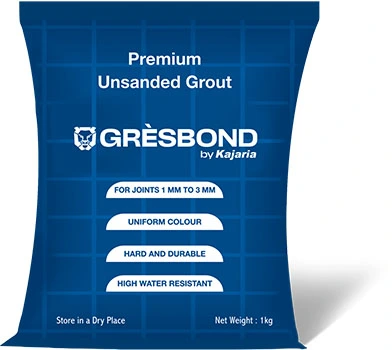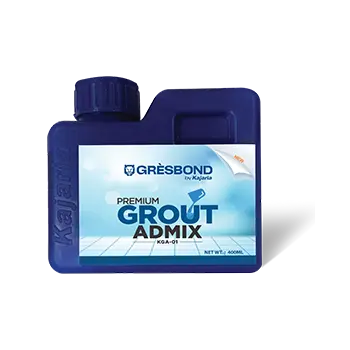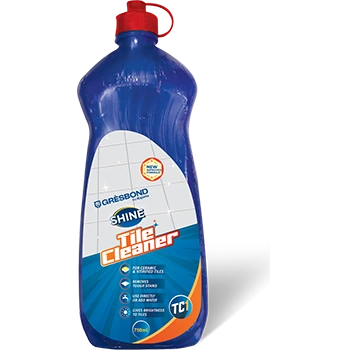Best Floor Tile Adhesive Used for Flooring Tiles
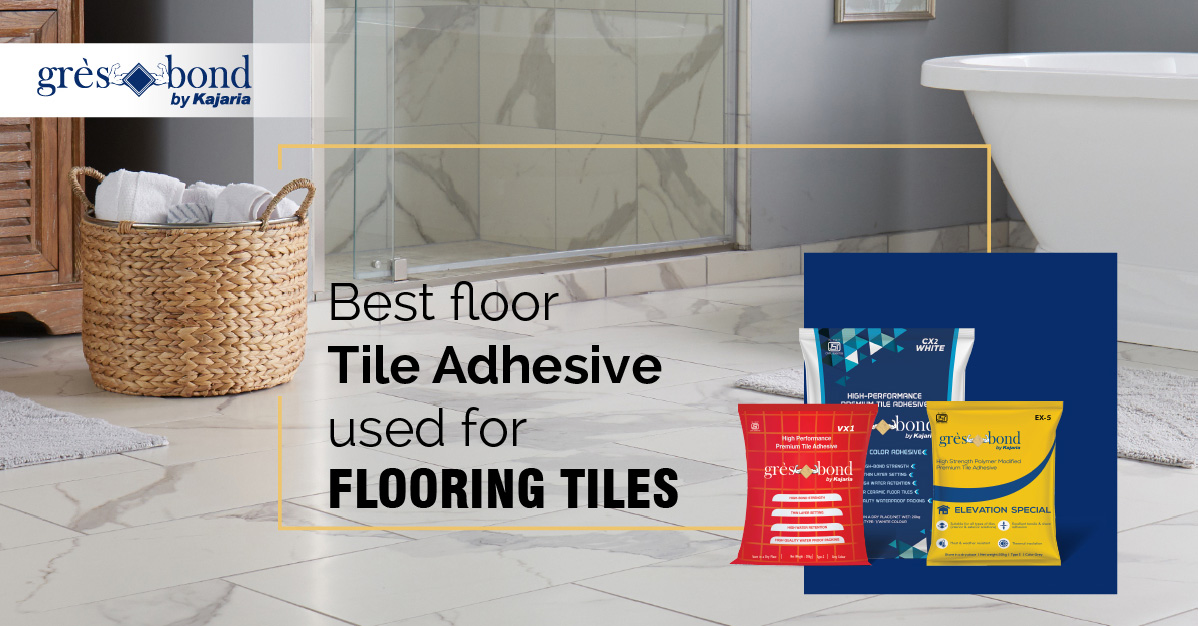
Best Floor Tile Adhesive Used for Flooring Tiles
When laying tiles, selecting the suitable adhesive is as crucial as choosing the tile itself. The proper adhesive ensures your tiles stay fixed securely, look great, and perform well for years. Purchasing premium or costly flooring tiles will not make the floor durable, but fixing the tiles properly ensures longevity. People can be seen saving money on tile-fixing solutions. Instead of fixing tiles with premium or branded adhesives, they prefer to use cement material or a local glue-like cement paste. Only some of the adhesives are similar and compatible with all the tiles. Large format tiles need stronger fixing solutions than small tiles. Only a professional working on tiling projects may guide you in finding floor tile fixing solutions.
This article will walk you through the various types of tile adhesives in India and flooring tiles and what to consider when choosing your adhesive, helping you make an informed decision for your flooring project.
Types of Floor Tile Adhesives Available in the Market

- Cement-based adhesives, mixed with water and used mainly for ceramic and porcelain tiles, are a traditional choice. They are favored for their robust bonding strength.
- Pros: They are economical and widely available. They offer good slip resistance, making them suitable for floor tiling.
- Cons: They are not flexible and can crack in areas with movement or temperature changes.
- Epoxy Adhesives, composed of resin and hardener, are known for their superior strength and chemical resistance, making them ideal for high-stress areas.
- Pros: Water-resistant and very strong, suitable for stone tiles and areas exposed to moisture like bathrooms.
- Cons: More challenging to work with and significantly more expensive than other adhesives.
- Acrylic Adhesive: These are modified cement adhesives with added acrylic latex, enhancing their flexibility and adhesion properties.
- Pros: Better adhesion and flexibility than purely cement-based adhesives; suitable for substrates with slight movement.
Cons: It can be more expensive and may take longer to cure than traditional adhesives
Different Types of Flooring Tiles

- Ceramic Tiles are a popular choice for their versatility, cost-effectiveness, and wide range of colors and patterns.
- Porcelain Tiles: These tiles are highly durable and water-resistant, making them ideal for indoor and outdoor use.
- Natural Stone Tiles: Marble, granite, and slate tiles offer a unique, luxurious look and are known for their durability and textures.
Using premium tiles is better than using Flooring stickers, which are a temporary solution. Only a tile expert can guide you on which type of tile is best for your floor out of the different varieties of floor tiles available in the Indian market.
Factors to Consider While Selecting Floor Tile Adhesives
- Tile Material: Different materials require different types of adhesive. Natural stone typically needs a more robust adhesive than ceramic.
- Location: The area where the tiles will be installed plays a crucial role. Wet areas like bathrooms need a water-resistant adhesive.
- Substrate Condition: The surface you are tiling must be considered. Uneven surfaces need a more flexible adhesive to accommodate surface imperfections.
- Traffic: High-traffic areas require a stronger adhesive to handle wear and tear.
- Temperature and Humidity: Environmental conditions affect the performance of an adhesive over time.
- Chemical Composition: Understanding the chemicals involved can help predict the adhesive's behavior with different tile materials and under various environmental conditions.
- Setting Speed Varieties: Some adhesives offer rapid setting options, which are great for quick renovations, while others have longer setting times that allow for larger, more complex tiling jobs.
- Eco-Friendly Options: With growing environmental awareness, many manufacturers now offer eco-friendly adhesives that are low in VOCs and other harmful chemicals.
- Flexibility after Curing: Some adhesives retain flexibility even after curing, which is crucial for areas prone to movement or expansion, such as wooden floors or exteriors.
- Compatibility with Underfloor Heating: Certain adhesives are specifically formulated to withstand the heat fluctuations of underfloor heating systems without losing integrity.
- Adhesive Strength: The bond strength can vary between products, with some designed for lightweight domestic use and others capable of holding heavy, large-format tiles often used in commercial settings.
Considering the green aspects helps you choose the most suitable adhesive for your floor tiling project in residential or commercial construction, ensuring longevity and performance.
Tiles Over Tiles Using Adhesive

Tiling over existing tiles can save time and labor costs. However, a suitable adhesive and proper surface preparation are essential.
Use a high-quality flexible adhesive designed for tiling over tiles.
Ensure the existing tiles are clean, stable, and free of loose parts.
Scuff the surface of the old tiles to improve adhesion.
Tips to Choose the Right Adhesive for Flooring Tile Construction
Evaluate the Specific Needs of Your Project: Consider all aspects of your installation area, including exposure to water, expected foot traffic, and substrate type.
- Consult with Professionals: Advice from experienced tilers or manufacturers can guide you to the best product.
- Read Product Specifications: Always check the adhesive specifications to ensure they match your requirements for moisture resistance, open time, and flexibility.
- Consider the Working Time: Some adhesives set faster than others. Make sure you can position and adjust tiles within the working time.
Choosing the suitable floor tile adhesive is essential for ensuring a successful installation that lasts. By understanding the different types of adhesives available and the specific needs of your flooring project, you can select the best product that offers durability, ease of use, and aesthetic appeal. Check for the uses of Tile adhesives with Gresbond by Kajaria, read the application, and then only use the material for Floor tile solutions.

